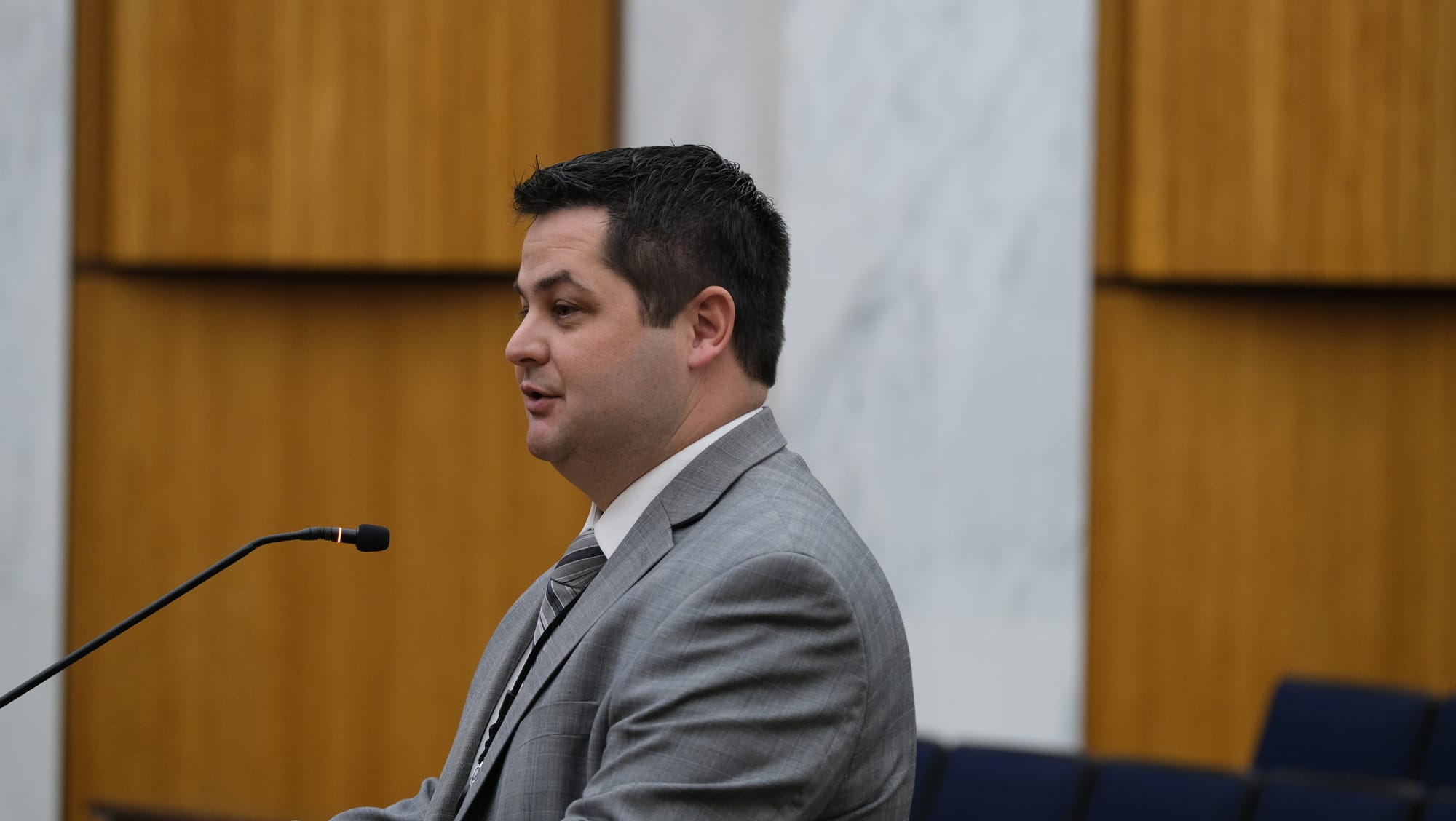
Richmond selects national engineering firm to review water failure
An engineering firm hired by Richmond officials to look into the city’s water plant failure earlier this month said it’s hoping to have “boots on the ground” early next week as it begins to investigate what went wrong.
Officials announced Wednesday that they’ve selected HNTB — a large infrastructure firm with more than 80 offices nationwide and about 7,000 employees — to conduct the outside review of the water crisis. The work is expected to cost around $234,000, according to a contract the city made available on Wednesday night.
The city evaluated a dozen firms for the job, according to an official. Interviews were conducted with six, and HNTB won out among the three considered finalists.
A representative from HNTB, which has not done work for the city before, appeared virtually at a City Council committee meeting Wednesday afternoon as elected officials continued to go over next steps in the city’s response.
Jason Hoff, who specializes in water infrastructure for HNTB, told council members the company is expecting to have “preliminary findings” within a few weeks and will follow up later with a full rundown on what the city can do to prevent future disruptions to water service.
Hoff said that in his firm’s experience with similar situations, there may be no “smoking gun” that explains what happened in Richmond and the cause is likely to be “multi-faceted.”
“But hopefully we'll be able to determine several improvement areas,” he said.
Mayor Danny Avula had pledged to hire an outside company to do a full investigation into why the city’s water treatment plant failed after a power outage on Jan. 6, leading to the city and other parts of the Richmond region being without usable water for much of that week.
“I am committed to having a thorough investigation into what happened at the water treatment plant last week, and bringing HNTB on board is a key step in that process,” Avula said in a news release Wednesday afternoon. “As we move forward, my partners on City Council and I will keep the public informed and up to date on the after-action process.”
Avula previously said the report would be completed about 30 days after a firm was selected and began its work.
Councilor Katherine Jordan (2nd District) said she felt the city had found a “very well-established firm.”
“Time is of the essence,” she said. “We want to do this investigation while memories are fresh.”
Administration officials didn’t have all the answers to council members’ questions at Wednesday’s meeting of the Governmental Operations Committee.
Councilor Sarah Abubaker (4th District) asked if HNTB will be able to interview April Bingham, the former director of the Department of Public Utilities who stepped down from that job earlier this month in the aftermath of the water situation. Abubaker also asked if the city had conducted an exit interview with Bingham when she left.
“I don't have a list of everyone who we would interview yet. We're still working through those details,” Hoff said, adding that his firm is hoping to get information from “anyone who can help the investigation.”
Council members had also not been given a copy of the contract with HNTB prior to Wednesday’s meeting, and administration officials could not immediately answer a question from Councilor Kenya Gibson (3rd District) about how much the contract would cost, although they later supplied the contract.
Gibson said she hopes the city will be fully transparent about how the investigation was initiated and what exactly its purpose is.
“What I expressed was a need for what we called a third-party investigation. And the terminology that I'm hearing today is an after-action report,” Gibson said. “And I think there's some nuance in that language that is worth considering. It would be helpful to see, for one, the contract between the city and the organization in terms of their scope of work. And to make that public. I think the public wants to see exactly what they've been tasked to do. And I think the public's gonna want to know how much are we spending on it.”
City officials released contract documents on HNTB's hiring Wednesday evening. A document outlining the scope of the work says the investigation will involve interviews with staff at the water treatment plant, a site visit, a review of the facility's plans and interviews with city leaders. The contract documents say the firm expects to have preliminary findings within 30 days and a finished report in 60 days.
Council members have compiled a list of more than 50 questions and issues they want to see addressed in HNTB’s review. Avula and other city officials have said their immediate focus has been on getting through the crisis, which has limited their ability to answer every inquiry they’ve received.
Interim DPU Director Anthony “Scott” Morris, the engineer and former state water official who Avula selected to replace Bingham, also attended Wednesday’s meeting to introduce himself and offer his initial thoughts.

After Gibson asked “how crazy is it that this happened” and how concerned city officials should be that the city could lose water for a week, Morris indicated he doesn’t think the snow-induced power outage revealed any uniquely severe problems that couldn’t be improved with better emergency planning.
“Ultimately there will be an interruption to power. There will be storms, there will be something that occurs that causes you to interrupt your normal operations,” he said. “And then when you switch from normal operations to emergency planning and emergency operations, you need to have those procedures in place to make sure that you remediate some of those risks. It’s just planning. That’s what needs to take place.”
Council members also asked Morris if he had any idea of how much the city should expect to spend on water infrastructure upgrades in the upcoming budget season. Morris said he’s still getting up to speed on how DPU has used capital funding and what its priorities should be moving forward, and he could have a more complete response in a month or so.
Officials have retained another firm to assist with their emergency planning and communications efforts and review the water crisis from that angle, Director of Emergency Communications Steven Willoughby told the council committee Wednesday. That contract, with the Hagerty consulting firm, is expected to cost $400,000.
Willoughby also explained why the city was unable to send a mass text message to Richmond residents about the boil water advisory that went out Jan. 6.
A new system the city is in the process of implementing, he said, will have the ability to send text messages to all cell phones within a geographic area, regardless of whether users have signed up to receive alerts from the city.
That system is expected to go live on Feb. 3, Willoughby said.
“The current system that we have proved me right in regards to we needed to replace that,” he said. “Unfortunately, it had not been replaced yet.”






